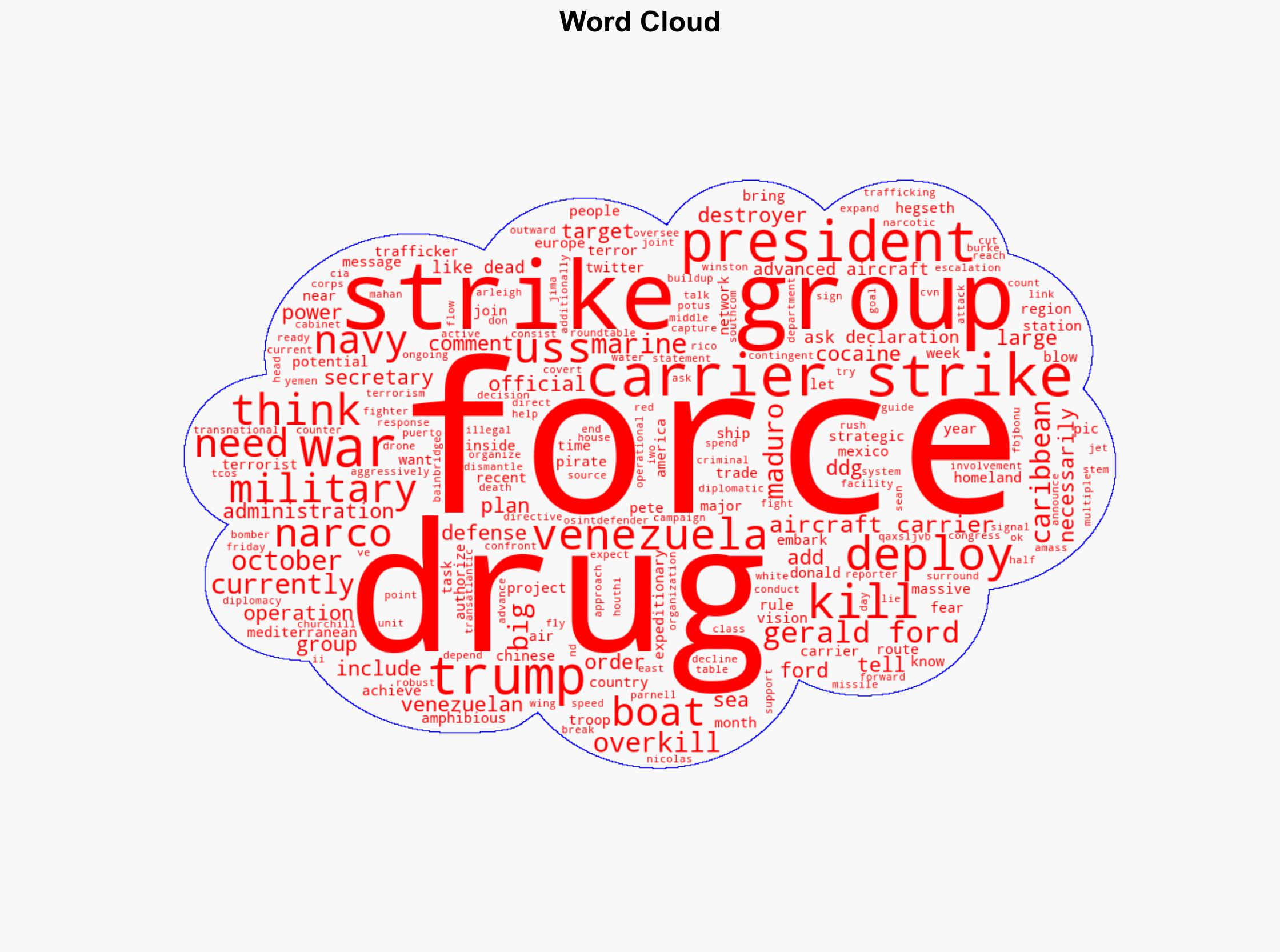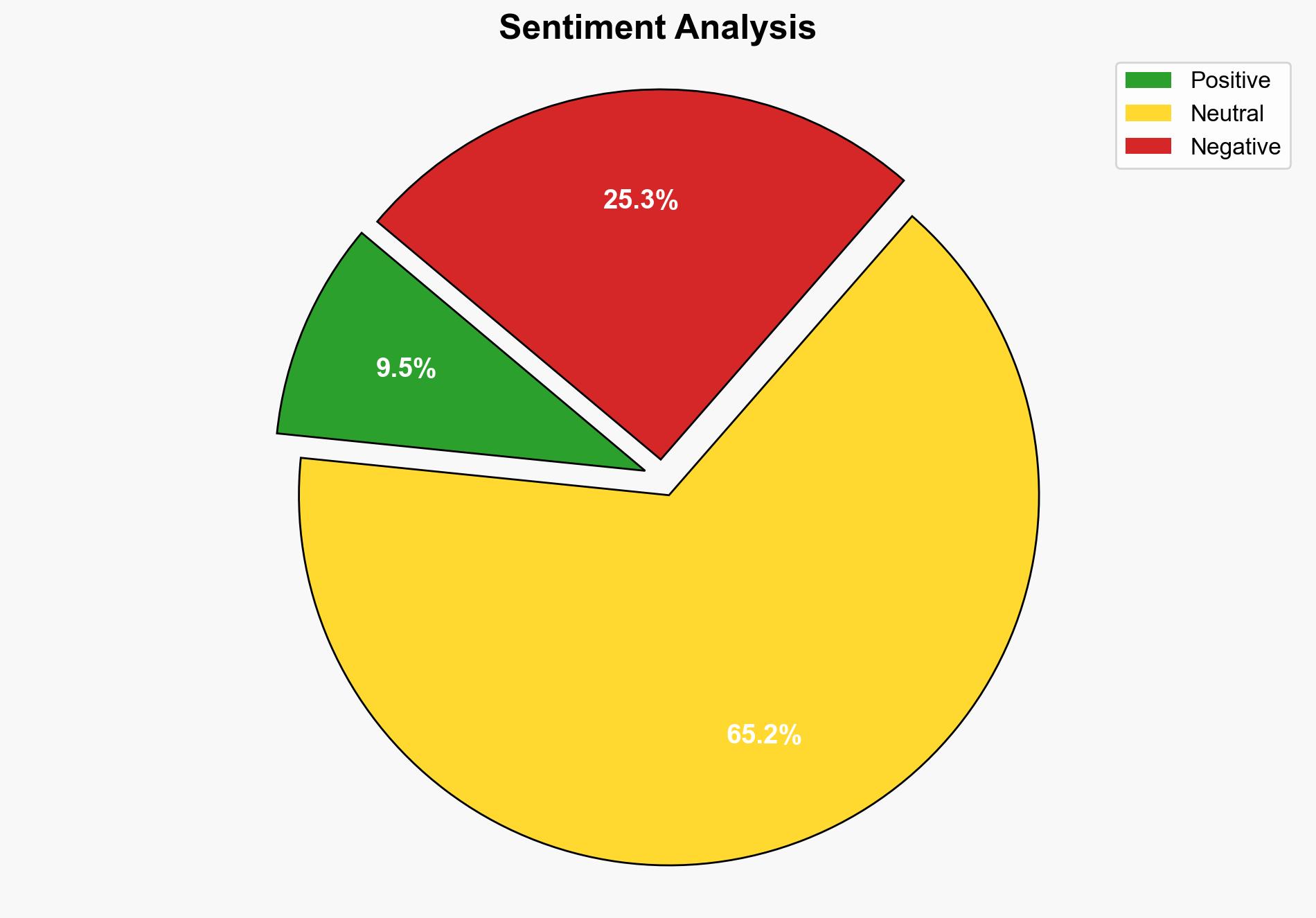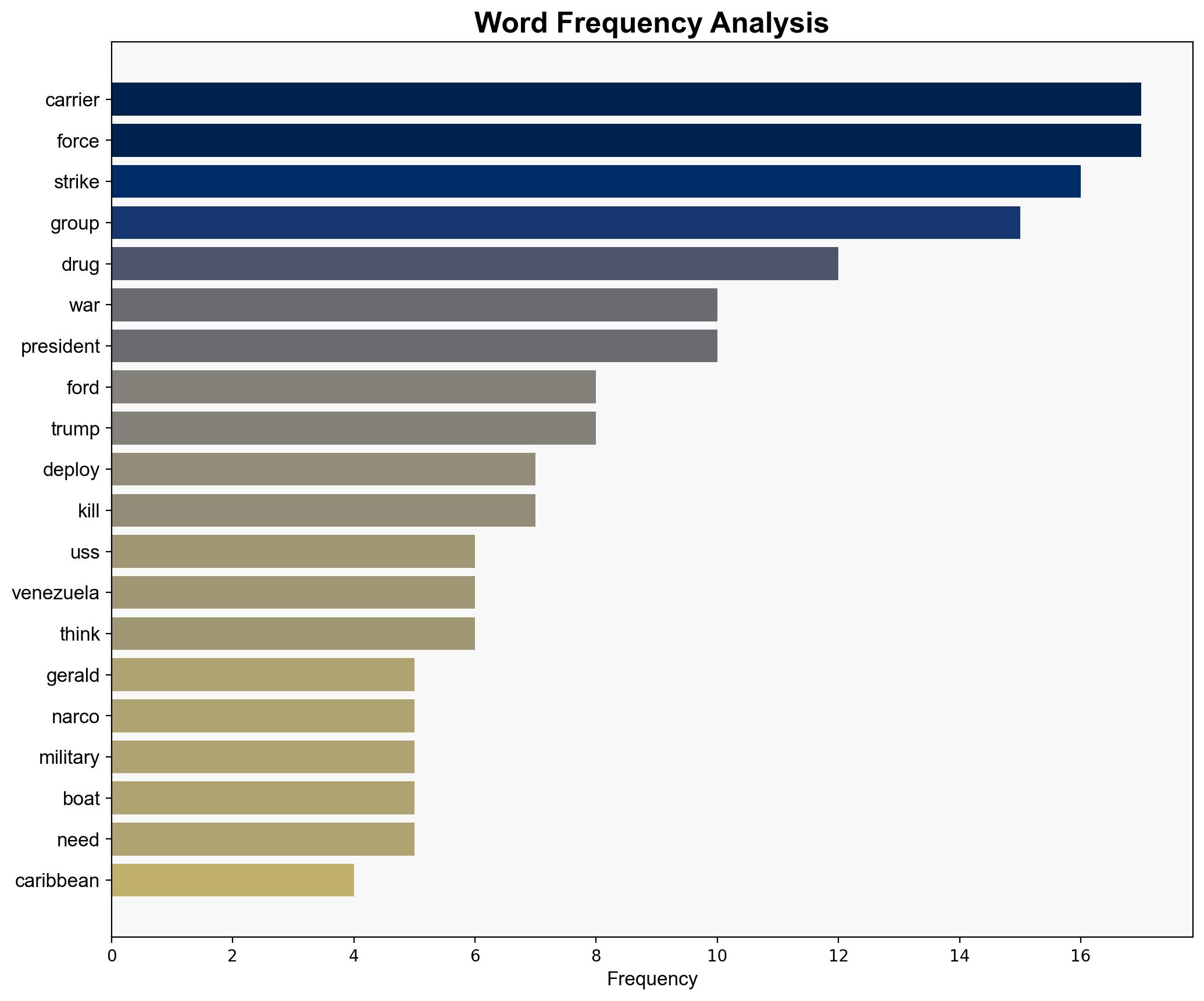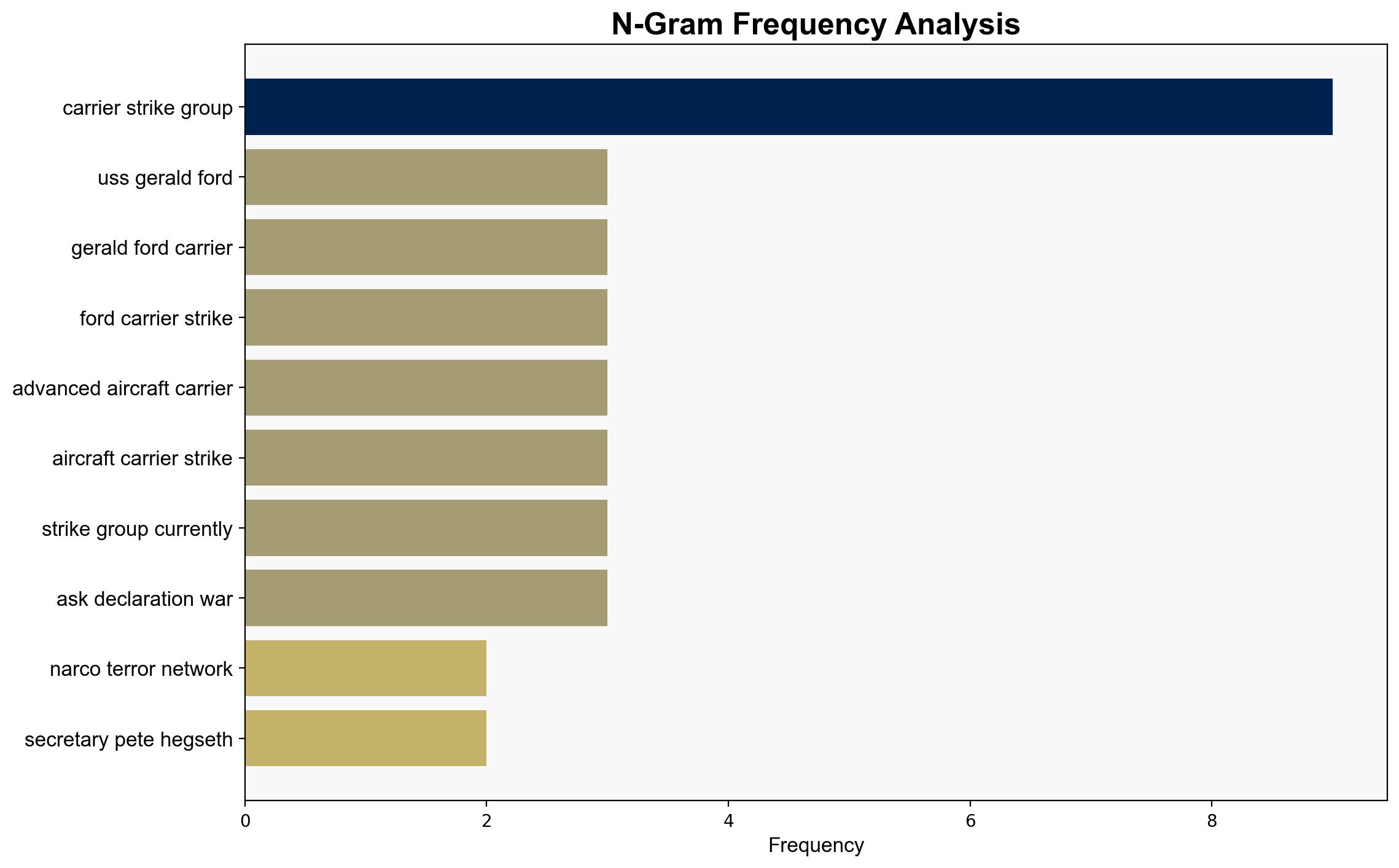USS Gerald R Ford Carrier Strike Group Heads to Caribbean to Confront Narco-Terror Networks – Legalinsurrection.com
Published on: 2025-10-25
Intelligence Report: USS Gerald R Ford Carrier Strike Group Heads to Caribbean to Confront Narco-Terror Networks – Legalinsurrection.com
1. BLUF (Bottom Line Up Front)
The deployment of the USS Gerald R Ford Carrier Strike Group to the Caribbean is a strategic maneuver aimed at countering narco-terror networks, with a specific focus on Venezuela’s involvement in the drug trade. The most supported hypothesis suggests this is a calculated move to exert military pressure on Venezuela, potentially escalating into a broader regional conflict. Confidence level: Moderate. Recommended action: Increase diplomatic engagement with regional allies to mitigate escalation risks.
2. Competing Hypotheses
1. **Hypothesis A**: The deployment is primarily a show of force to deter Venezuela’s involvement in the drug trade and signal U.S. commitment to counter-narcotics operations.
2. **Hypothesis B**: The deployment is a precursor to potential military action against Venezuelan targets, aiming to destabilize the Maduro regime and disrupt drug trafficking routes.
Using Analysis of Competing Hypotheses (ACH), Hypothesis A is better supported by the emphasis on signaling and deterrence in the source text. Hypothesis B, while plausible, lacks explicit evidence of imminent military action.
3. Key Assumptions and Red Flags
– **Assumptions**: The U.S. believes Venezuela is a major player in the drug trade and that military presence will deter further involvement.
– **Red Flags**: Lack of explicit evidence linking the deployment to direct military action against Venezuela. Potential overestimation of the impact of military presence on drug trafficking networks.
– **Blind Spots**: Possible underestimation of regional backlash or escalation into broader conflict.
4. Implications and Strategic Risks
– **Implications**: Increased U.S. military presence may strain relations with regional allies and provoke retaliatory actions from Venezuela.
– **Strategic Risks**: Escalation into a military conflict, potential for increased anti-American sentiment in the region, and disruption of diplomatic efforts.
– **Cascading Threats**: Potential for cyber retaliation or asymmetric warfare tactics by Venezuelan or allied forces.
5. Recommendations and Outlook
- **Mitigation**: Engage in diplomatic dialogue with regional partners to build a coalition against narco-terrorism and reduce tensions.
- **Exploitation**: Leverage the deployment to strengthen intelligence-sharing agreements with regional allies.
- **Scenario-Based Projections**:
- **Best Case**: Successful deterrence of drug trafficking activities without military escalation.
- **Worst Case**: Military confrontation with Venezuela leading to regional instability.
- **Most Likely**: Increased diplomatic tensions with a maintained military presence as a deterrent.
6. Key Individuals and Entities
– Donald Trump
– Pete Hegseth
– Nicolas Maduro
7. Thematic Tags
national security threats, counter-terrorism, regional focus





